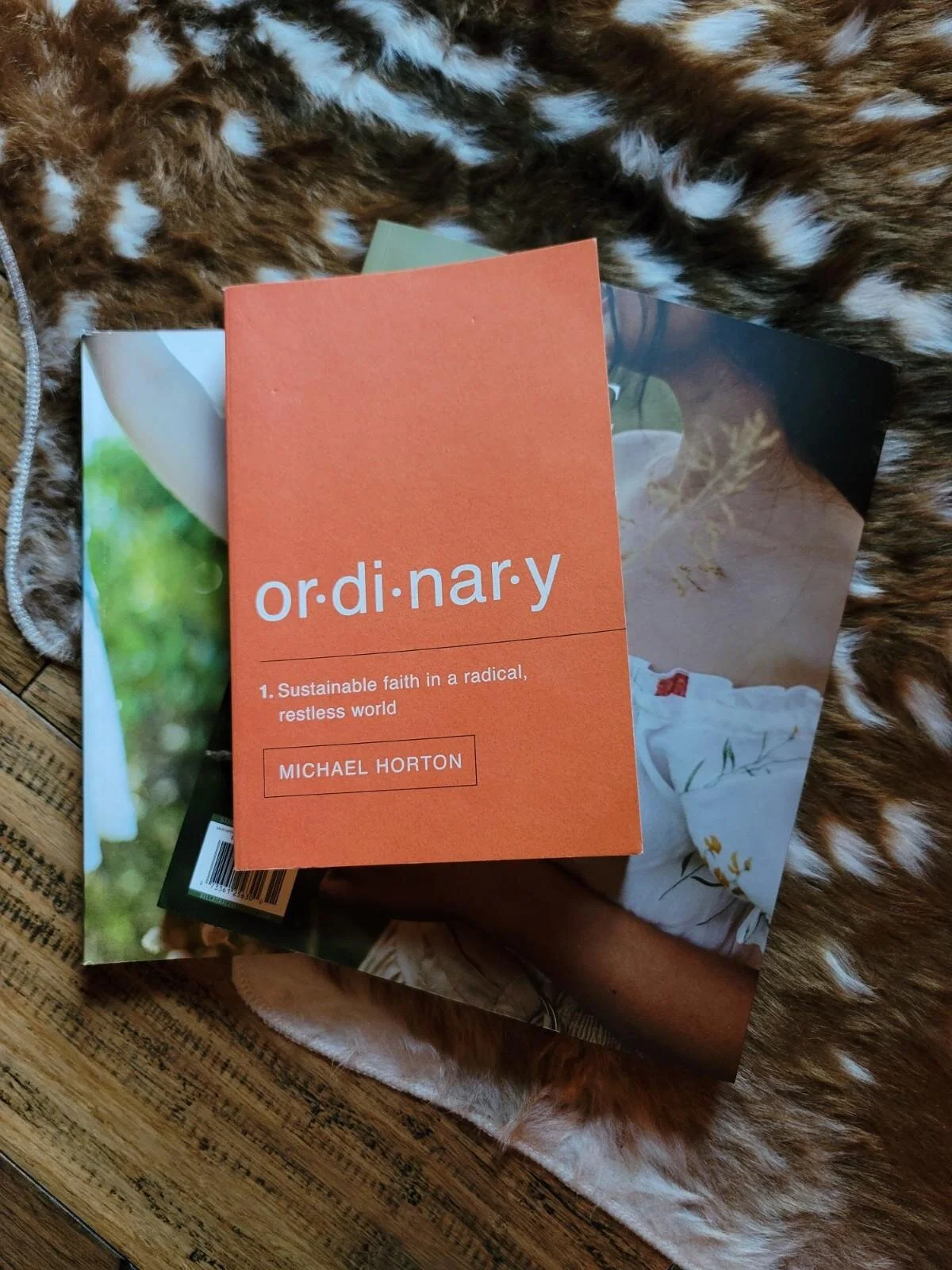Book Review: Ordinary, Sustainable Faith in a Radical, Restless World
Okay, let's talk about this book:
After reading *Glory in the Ordinary*, I wanted to read this to see if it was more satisfying. This book was quoted twice, and both quotes were magnificent. My philosophical husband was quite delighted that I went and found the source material to see if it was better. :grin: It was.
This book was much more what I was looking for than *Glory in the Ordinary*. It was a rich theological treatise on the beauty and good and biblicalness found in our ordinary vocations and ordinary church membership.
It fed my soul and also helped confirm in my mind many things I react against. Sometimes I react emotionally and have to sort out if that emotion is good or bad. This book helped me with that. It also encouraged me to carry on in my ordinary church membership and homemaking, planting an apple tree today even if our Lord comes tomorrow.
I highly recommend this book for both homemakers and parents. Kids are being fed this lie of greatness, and so are we, all the time. This will help you, and help you help them. This will encourage you that you don't need to go save the world, you need to be faithful to your church and faithful to your work, whatever that is. There are also some good principles for artists that were helpful. For those of us wondering if our daily cleaning, cooking, and laundry are of any value, this book says yes, cause it's caring for our neighbors and our church. This book can help re-root you in the truth of the ordinary if the world has been doing its level best to uproot you.
This is more of a theological book but still approachable in its writing style compared to most books written for women...cause it's written for everyone. That's a good thing. HearthKeepers should be deep thinkers. It is written by a Presbyterian, Reformed yes, but still a Presbyterian. (I'm aware not all of us are Reformed Baptists in this group, that's a good and healthy thing, you just need to know what you're getting into.) This plays a role in how he handles some things. It is more prevalent in the second half of the book. I really struggle with the second half because I know I don't agree with him theologically on some things so I was uncertain about some of his conclusions. They weren't wrong necessarily, I just hesitated to be all in because I don't agree with his starting point.
Never shut your brain off.
One Warning: he made some, honestly, odd connections in the chapter on Contentment between Narssistic, Materialistic, and Captalism, making the classic error that Capitalism is a philosophy. It's not. It's a science. So that whole thing about covenants vs contracts was very weird and kinda could lead someone down the road to socialism or communism, which I found very odd. I was so confused I read that part twice...and agreed to disagree. I have since found out that Horton has gotten a bit swept up in the Social Justice movement, which isn't that surprising after some of the things he hinted at and danced around and said towards the end of the book. We need to stay sharp, HearthKeepers. These things aren't good. (Read *Fault Lines* by Voddie Baucham for some help in navigating this muddy waters.)
All in all, a timely and great book, just don't stop being discerning because it's Horton. If you're a Reformed Baptist, stay frosty and know that he makes some points and assumptions we don't agree with.
While this has little to do with actually homemaking, it deals with where our thoughts, attitudes, and hearts should be as we tend our homes. Despite the warnings, I would recommend it.

